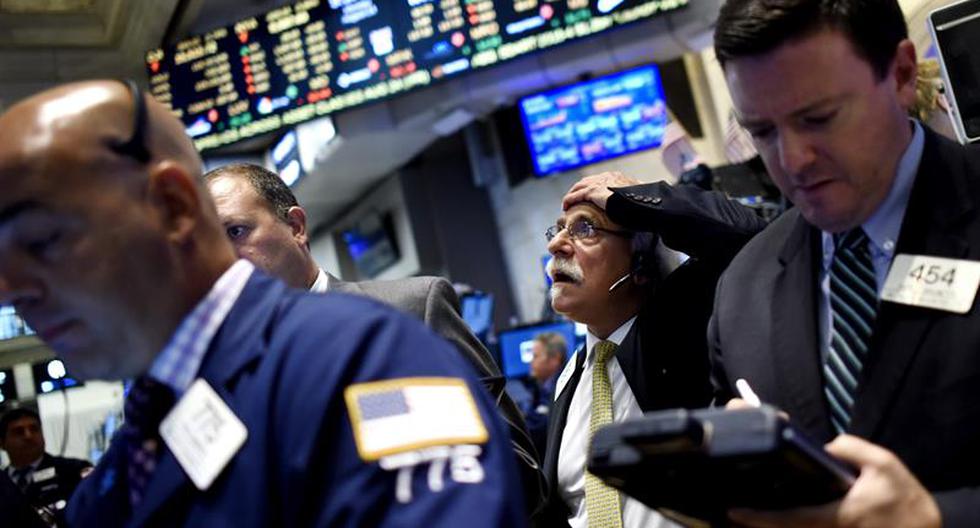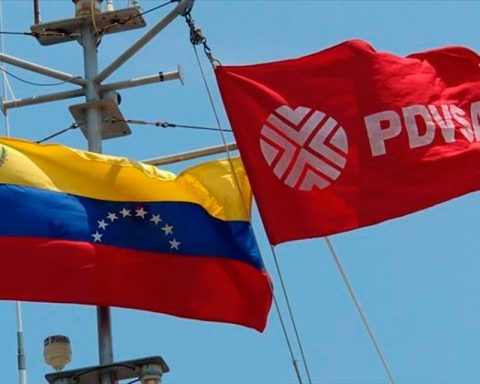The main world stock markets fell again this Monday, after the new sanctions imposed on Russia for its attack on Ukraineamid fears that energy prices will skyrocket and reinforce current inflation.
By 08:55 GMT, the European markets were in the red: Frankfurt lost 2.39%, Paris 3.05%, Milan 2.59%, Madrid 1.40% and London 1.54%. The European reference index Eurostoxx 50 fell 3.18%.
Asian stocks were more resilient: Tokyo rose 0.19%, Shanghai 0.32%, and Hong Kong lost 0.24%.
Commodities soared again, starting with oil, whose barrel of WTI, the main US benchmark, rose more than 4% to around US$95.
SIGHT: Ukraine: This is how the anti-aircraft sirens sound that alert Kiev of Russian bombing
Russia-Ukraine conflict
The Russian offensive against Ukraine, which is resisting attacks, continued on Monday, the day after President Vladimir Putin’s nuclear threat, to which European countries responded by promising to supply weapons to Kiev. Moscow’s willingness to find an “agreement” with Kiev did not seem sufficient for the moment to reassure the markets.
Western countries have adopted tough financial sanctions against Moscow, especially the decision to exclude numerous Russian banking establishments from the Swift platform, crucial for global finance.
This measure “does not block them, but makes them chaotic and unreliable”, explains Ipek Ozkardeskaya, an analyst at Swissquote bank, referring to Russian banks.
Russian currency plummets
The European Central Bank found on Monday that the European subsidiary of the Russian bank Sberbank is in “bankrupt or likely bankrupt” due to the “significant” withdrawals of deposits due to the conflict in Ukraine and the sanctions.
SIGHT: “Until the last cartridge is burned”: Peruvian is willing to fight for Ukraine
The central bank’s access to capital markets was also limited, after the European Commission said it will propose to “freeze” its assets. As a consequence, the ruble plunged more than 20% on Monday around 08:50 GMT.
This means that “no G7 bank will be able to buy Russian rubles”, specifies Michael Hewson, an analyst at CMC Markets, who fears “a huge inflationary effect on Russia”.
The Russian central bank announced that it will raise its reference interest rate by 10.5 percentage points, taking it to 20%, to face severe economic sanctions.
These financial penalties against Russia could have consequences for inflation outside the country as well.
The conflict islikely to significantly increase energy prices, which would entail immediate inflationary effects and a significant brake on world growth”, considers Silvia Dall’Angelo, an economist at Federated Hermes.
energy shoots up
Oil prices slightly cut the increase registered shortly before with the Asian stock markets. The barrel of WTI crude rose more than 4% to about US$95 and that of Brent 4.41% to US$102, well installed above US$100, a level that it exceeded for the first time since 2014 last week.
In the European natural gas market, the benchmark contract rose 23% by 08:45 GMT.
“The withdrawal of some Russian banks from Swift could lead to a supply disruption in oil, as buyers and sellers try to figure out how to organize under these new rules.”, notes Andy Lipow, of Lipow Oil Associates in Houston.
The prices of other raw materials also registered increases: wheat rose 4.48% and palladium, 3.39%.
Russia and Ukraine are essential countries for the supply of oil, gas, wheat and other raw materials.
According to the European Union, around 70% of the Russian banking sector is currently excluded from the Swift system.
The actions of several European banks were impacted by it. This was the case of the French banks BNP Paribas (-8.53%) and Société Générale (-9.70%), of the German Commerzbank (-7.32%) and Deutsche Bank (-7.06%), or of the Italian Unicredit (-6.82%). .
In London, around 09:50 GMT, the share of the British oil group BP fell 6.74% after the announcement that it was withdrawing from the Russian oil company Rosneft, of which it controls 19.75% of the capital.
At the currency level, the euro fell against the dollar, considered a safe value in times of uncertainty. The European currency was worth US$1.1166, down 0.90%.
With information from AFP

















